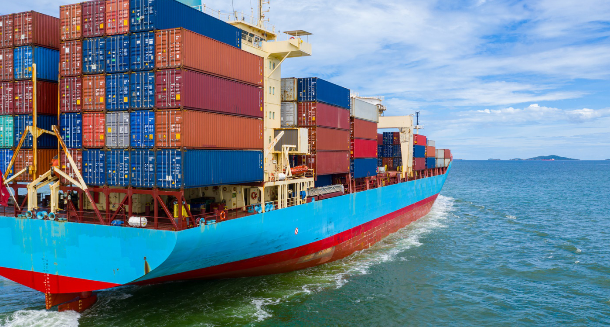|
UN leaders urge shipping companies to protect seafarers’ rights
A wide-ranging human rights checklist has today been issued to business enterprises engaged with the maritime industry to protect seafarers stranded on ships due to new COVID-19 variants and government-imposed travel restrictions, under a joint initiative by the UN Global Compact, the UN Human Rights Office, the International Labour Organization (ILO) and the International Maritime Organization (IMO).
The Human Rights Due Diligence Tool for cargo owners and charterers has been issued amid concerns that the number of crew stranded working beyond their contracts at sea by COVID-19 restrictions could surge from the current level of 200,000, potentially returning to the peak of 400,000 seafarers at the height of the crew change crisis in September 2020. UN agencies hope the new guidance will help ensure that the working conditions and human rights of seafarers are respected and comply with international standards.
The new guidance aims to ensure that seafarers have their rights safeguarded in areas such as physical and mental health, access to family life and freedom of movement. Whilst recognizing the importance of the maritime industry in transporting more than 80% of global trade goods, UN agencies have expressed concern at reports of seafarers working beyond the 11-month maximum limit of service on board set out by the ILO Maritime Labour Convention (MLC).
The UN agencies have also expressed strong concern at reports that companies engaged in international trade are avoiding chartering vessels where a crew change is due, with some demanding ‘no crew change’ clauses in charter party agreements, preventing needed crew changeovers and adding further pressure on the maritime industry. UN agencies have reminded that under the UN Guiding Principles on Business and Human Rights (UNGPs), companies engaged with the maritime industry have a distinct responsibility to respect the human rights of seafarers as workers along their value chain.
The new human rights tool complements current industry-led collective action, such as the Neptune Declaration on Seafarer Wellbeing, which has been signed by more than 750 companies. The tool aims to provide guidance and a checklist for cargo owners, charterers and logistics providers to conduct human rights due diligence across their supply chains to identify, prevent, mitigate and address adverse human rights impacts for seafarers impacted by the ongoing Covid-19 crisis.
Sanda Ojiambo, Executive Director and CEO of the UN Global Compact said: “The impact of the COVID-19 pandemic has highlighted the fragility of global supply chains as seafarers continue to endure tremendous, and yet largely invisible, hardship and suffering. The maritime industry is responsible for transporting over 80% of global trade goods and so it must ensure it builds resilience to future shocks. The mental and physical wellbeing of seafarers must be a priority and this tool is an important step in building awareness of how to address human rights abuses in the maritime sector. It sends a powerful message of the importance of incorporating maritime workers in due diligence mapping to ensure that adverse human rights impacts are identified, prevented, mitigated and addressed.”
Guy Ryder, ILO Director General, said: “As the ILO Committee of Experts said in its general observation last December, it is precisely at times of crisis that the protective coverage of the MLC, 2006, assumes its full significance and needs to be most scrupulously applied. This is even more so given that the Convention contains only minimum standards for the protection of seafarers’ rights. The ILO has urged Governments to ensure the protection of seafarers’ rights, and welcomes this initiative that will help businesses to play their part in this collective effort”.
Kitack Lim, IMO Secretary General, said: “Seafarers are at the heart of the global supply chain. They are also at the mercy of COVID-19 restrictions on travel and transit. This has led to hundreds of thousands of seafarers being denied repatriation, crew changes, shore leave and ultimately being forced to stay working on ships long beyond their contracts. It is incumbent on everyone involved with shipping, across the entire supply and logistics chain, to ensure seafarers rights are protected. This tool is an important step forward, providing a practical approach for cargo owners, charterers and logistic providers to consider the human rights of seafarers and ensure they are put first and foremost as they work to deliver the goods that people need and want.”
Michele Bachelet, High Commissioner for Human Rights, said: “The COVID-19 seafarer’s crew change crisis has put the spot on one the weakest links in global supply chains. This is an urgent and grave humanitarian and human rights crisis that is impacting the lives of thousands of maritime workers. All companies involved in global supply chains may be linked to this crisis. The UN Guiding Principles on Business and Human Rights require that companies identify whether they are involved with the crisis, including through their business relationships, and take any necessary measure to seek to address the situation.”
Guy Platten, International Chamber of Shipping Secretary General, said: “The recent Suez Canal incident has reminded governments and the markets just how important global shipping is to the supply chains. Seafarers are continuing to work to maintain global trade through exceptional circumstances, and the Suez incident has only exacerbated the already dire crew change crisis. Seafarers must not be forgotten now the canal is open again, and we call on businesses to urgently adopt these important recommendations.”
|



